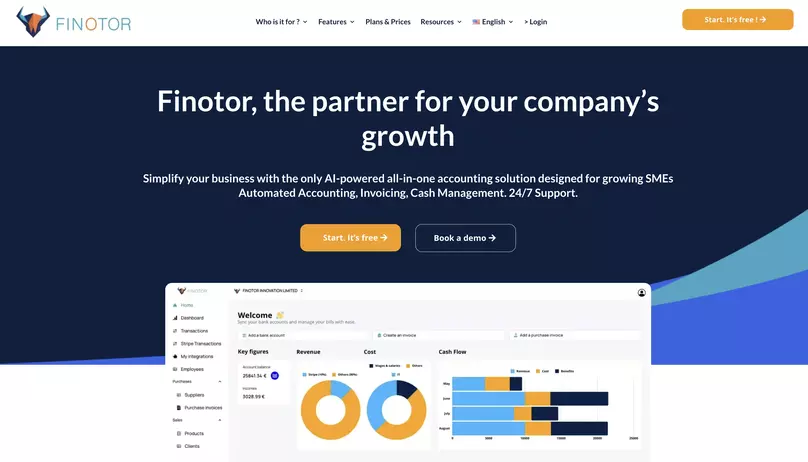Research has shown that partnership disparity within audit firms can significantly impact audit quality, and audit committees play a crucial role in overseeing these dynamics to ensure that the audit processes are effective and impartial. This disparity can create internal tensions and affect the cohesion of the audit team. When partners feel undervalued or less compensated compared to their peers, it can lead to decreased motivation and lower performance levels, ultimately impacting audit quality. On the other hand, a well-balanced partnership structure where partners feel equally valued can foster a collaborative environment, enhancing overall audit quality. Additionally, regular review processes can help identify and address disparities, ensuring that firms with lesser partnership disparity tend to produce more thorough and reliable audit reports. This upholds higher standards of financial transparency and credibility, which ultimately benefits all stakeholders and supports the integrity of capital markets.
In the world of financial audits, the quality of the audit process is paramount. It ensures the accuracy and reliability of financial statements, which in turn reinforces investor confidence and promotes financial stability. However, audit quality can be influenced by various factors, one of which is partnership disparity within audit firms. Partnership disparity refers to the differences in the workload, experience, and expertise among partners in auditing firms. Additionally, the role of the independent auditor in ensuring high-quality audits cannot be overstated. Studies have shown that independent auditors, along with their engagement teams, act as gatekeepers for investors and the public interest, supporting the capital markets and the efficient allocation of capital. This blog post aims to delve into how partnership disparity affects audit quality, the implications for the broader financial industry, and how auditor performance is impacted by these disparities.
Development
The Role of Audit Quality
Audit quality is critical for maintaining the integrity of financial markets, and audit committees, along with firm leadership, play a pivotal role in overseeing the audit process to ensure its thoroughness and reliability. High-quality audits, supported by ongoing training for auditors and a strong emphasis on professional skepticism, provide a check against misstatements and fraud, offering stakeholders a true and fair view of a company’s financial position. Conversely, poor-quality audits can lead to inaccurate financial reporting, which can mislead investors and other stakeholders, potentially resulting in financial losses and a loss of trust in the financial system.
Factors Contributing to Partnership Disparity in Audit Firms
Several factors contribute to partnership disparity within audit firms. One primary factor is compensation. Disparities in compensation can arise from differences in client portfolios, billable hours, industry knowledge, and individual performance metrics. Partners handling more lucrative clients or those with specialized expertise often command higher compensation, leading to disparity. To address these issues, firms should regularly review compensation structures and performance metrics to ensure a fair distribution of rewards and mitigate any emerging disparities.
Another factor is experience. Partners with longer tenures or more significant experience in the field tend to hold more influence and command higher salaries. This can create a gap between veteran partners and newer, less experienced partners. Additionally, status within the firm can vary, where some partners may have higher decision-making power or prestige due to their contributions to the firm’s strategic goals or business development efforts.
Implications for Skill Development and Knowledge Sharing
Partnership disparity can also influence skill development and knowledge sharing within audit firms. When partners feel inequity in status or compensation, they may be less inclined to share their expertise or collaborate actively with peers. This reluctance can stifle the growth of collective knowledge, hinder the professional development of less experienced partners, and potentially compromise auditor independence if partners are disincentivized to challenge each other’s judgments.
On the other hand, firms that strive for equity and balance among their partners tend to foster an environment of inclusivity and collaboration. In such settings, partners are more likely to mentor each other, share best practices, and work together to refine audit methodologies, thereby improving overall audit quality.
Case Studies and Real-World Examples
Numerous real-world examples and case studies illustrate the impact of partnership disparity on audit quality. For instance, firms that have implemented structured compensation policies and professional development programs aimed at reducing disparity and aligning with a partner’s interests have seen marked improvements in audit quality. For example, a firm that adjusted its compensation policies to reflect each partner’s interest in the partnership, ensuring fair distribution of partnership losses and gains based on the partnership’s basis, reported enhanced audit quality and partner satisfaction. Conversely, firms where significant disparities are unchecked often face challenges such as high turnover rates, partner dissatisfaction, and compromised audit outcomes, ultimately affecting the effectiveness of independent audit processes.
Understanding Partnership Disparity
Partnership disparity can arise from several causes, including differences in education, professional experience, and workload among partners. For instance, partners with extensive experience and specialized knowledge in certain industries may be better equipped to identify and address complex financial issues. In contrast, less experienced partners may struggle with these tasks, potentially compromising the quality of the audit. To mitigate these challenges, firms should implement regular review processes to assess and balance the distribution of workload and expertise among partners, ensuring that all team members are effectively supported and contributing to high-quality audits.
Workload inequality can also play a significant role. Partners managing multiple large clients might find it challenging to allocate adequate time and resources to each audit engagement. This could lead to oversights and errors, diminishing the audit’s overall quality. On the other hand, partners with fewer responsibilities might be able to devote more time and attention to their clients, thereby enhancing audit quality. Addressing workload disparities through a strategic plan that redistributes responsibilities and ensures balanced workloads can help mitigate these issues and improve overall audit performance.
Strategies for Addressing Partnership Disparity
To mitigate the adverse effects of partnership disparity on audit quality, firms can adopt several strategies. Implementing equitable compensation structures is one such strategy. By aligning compensation with both qualitative and quantitative performance metrics, firms can ensure that all partners feel valued and fairly rewarded for their contributions. This approach encourages consistent performance and reduces feelings of inequity. Additionally, developing and integrating these compensation structures into the firm’s strategic action plans can help ensure long-term commitment to equity and continuous improvement in audit quality.
Another effective strategy is fostering a culture of continuous professional development. Firms can provide regular training programs, mentorship opportunities, and knowledge-sharing forums that allow partners at different levels to exchange insights and improve their skills. This not only helps to bridge the gap between more and less experienced partners but also enhances the overall skill set within the firm, benefiting the engagement partners’ ability to lead high-quality audits. Such initiatives play a critical role in ensuring that all partners are equipped with the necessary competencies to perform effectively.
Moreover, firms should prioritize transparency in decision-making processes. When partners, auditors, and junior staff understand how decisions regarding compensation, workload allocation, and promotions are made, they are more likely to perceive the firm as fair and supportive. Transparency can reduce internal tensions, incorporate diverse perspectives, and promote a collegial atmosphere that values diversity in contributions and viewpoints. This environment is conducive to high audit quality and supports the integrity of capital markets.
Lastly, periodic reviews of partnership structures and policies can help identify and address any emerging disparities. By regularly assessing partner satisfaction, performance metrics, workload distributions, and each partner’s distributive share, firms can make informed adjustments that maintain equity and support audit quality. These reviews should be part of a broader commitment to fostering an inclusive and supportive work environment that not only values all contributions but also actively supports the professional growth and well-being of every partner.
Impact on Audit Quality
The disparity among partners in an audit firm can have significant effects on the quality of audits conducted. These effects manifest both directly and indirectly, influencing the thoroughness of the audit process, auditor performance, team dynamics, and overall effectiveness. Addressing partnership disparity effectively can also play a crucial role in building trust within the team, which further enhances the quality of audits and fosters a more collaborative working environment.
Direct Effects on Audit Quality
- Experience and Expertise
- Thoroughness of Audits: Audits led by less experienced partners may lack the depth and rigor needed to identify financial irregularities. Experienced partners bring critical knowledge and detail-oriented skills essential for high-quality audits.
- Risk Assessment: Experienced partners excel in assessing and responding to risks. They devise effective audit plans and allocate resources efficiently to higher-risk areas, ensuring a robust audit process.
- Decision-Making and Judgment
- Critical Judgment: Experienced partners possess refined judgment skills developed through years of practice, vital for making crucial audit decisions, such as identifying red flags and determining the extent of necessary procedures.
- Technical Proficiency: Higher technical proficiency allows experienced partners to navigate complex accounting standards and regulations, ensuring compliance and accuracy in financial reporting.
Indirect Effects on Audit Quality
- Team Dynamics
- Morale and Motivation: Teams led by highly skilled partners generally exhibit higher morale and better collaboration. Effective leadership fosters a positive environment, motivating team members to perform optimally and align with the firm’s objective.Communication and Guidance: Clear communication and guidance from experienced partners prevent misunderstandings and ensure alignment with audit objectives. Conversely, teams under less experienced leadership may struggle with miscommunication and lack of direction.
Training and Development
Mentorship and Skill Development: Experienced partners often provide valuable training and development opportunities for junior team members, helping build a competent and confident audit team over time while aligning with the firm’s strategic objective.
Knowledge Transfer: Effective knowledge transfer from experienced to less experienced auditors is crucial for maintaining high audit quality across the firm. Disparities in partner experience can create gaps in this transfer, affecting overall team proficiency.
- Morale and Motivation: Teams led by highly skilled partners generally exhibit higher morale and better collaboration. Effective leadership fosters a positive environment, motivating team members to perform optimally and align with the firm’s objective.Communication and Guidance: Clear communication and guidance from experienced partners prevent misunderstandings and ensure alignment with audit objectives. Conversely, teams under less experienced leadership may struggle with miscommunication and lack of direction.
- Partnership Allocations and Resource Management
- Resource Allocation: Effective resource management is critical for audit quality. Experienced partners can better allocate resources, ensuring thorough and efficient audits. Poor resource allocation by less experienced partners can lead to missed deadlines and incomplete audits.
- Workload Distribution: Unequal workload distribution can result from disparities in partner experience. Overburdened teams may produce subpar work due to time constraints and pressure, compromising audit quality.
Future Directions and Recommendations
As audit firms look towards the future, addressing partnership disparity becomes crucial for maintaining high standards of audit quality and firm stability. Investing in technology and innovation can be a game-changer in this regard. By leveraging advanced data analytics, artificial intelligence, and other technological tools, firms can enhance the capabilities of all partners, regardless of experience. These systems can aid in identifying risk areas, automating routine tasks, and providing deeper insights into financial data, thereby leveling the playing field and reducing the impact of experience disparity. Additionally, integrating technology can also help manage and track the contributed property of each partner, ensuring that their contributions are accurately reflected and valued. This, in turn, strengthens the overall financial reporting ecosystem and supports the role of the independent auditor and the engagement team in promoting accuracy and transparency.
Another recommendation is the establishment of a more inclusive partnership model. Firms can explore flexible partnership agreements that allow for different career paths and progression metrics. This model would recognize diverse contributions to the firm, such as business development, client relations, and technical expertise, giving authority and credit where due, rather than focusing solely on traditional financial metrics. By valuing a wider range of skills and achievements, including the diverse services provided by partners, firms can create a more balanced and equitable environment, benefiting both audit teams and overall firm performance. This approach underscores how audit quality is important for maintaining trust and accuracy in financial reporting..
Additionally, promoting a strong sense of firm culture and identity is essential. When all partners feel a shared commitment to the firm’s values and goals, it can mitigate the negative effects of disparity. Regular team-building activities, internal communication campaigns, and inclusive decision-making processes can help reinforce this sense of unity. A cohesive culture encourages collaboration, mentorship, and a collective approach to overcoming challenges.
Finally, ongoing assessment and adaptation are key, and audit committees play an essential role in this continuous improvement process. The landscape of audit firms is continually changing, influenced by regulatory updates, market conditions, and evolving client needs. Firms must stay agile by regularly reviewing their policies and practices related to partnership disparity. This includes gathering feedback from partners, the audit team, management, and firm leadership, staying informed on industry best practices, and making data-driven decisions to enhance equity.
In conclusion, addressing partnership disparity is not just about fairness; it’s about fostering an environment that drives audit excellence. By implementing equitable compensation structures, promoting professional development, ensuring transparency, and embracing innovation, audit firms can minimize the negative impacts of disparity. In doing so, they will not only improve audit quality but also create a more dynamic, inclusive, and resilient practice, benefiting both audit teams and the firm’s overall success. This holistic approach, which includes upgrading systems and processes, is essential for enhancing the effectiveness of independent audit processes and maintaining the integrity of financial reporting.
To mitigate the impact of partnership disparity on audit quality, audit firms can implement several strategies. First, they can invest in continuous professional development for all partners, ensuring that even those with less experience have access to the latest knowledge and techniques. Second, audit firms can promote better workload distribution, ensuring that no partner is overwhelmed and that all audit engagements receive the necessary attention. Additionally, conducting regular quality reviews can help maintain high standards across all audit teams, providing feedback and guidance to ensure consistent and thorough audit processes. Addressing other matters such as transparent decision-making and fostering a collaborative culture can further enhance overall audit quality and firm cohesion.
Third, audit firms can enhance communication and collaboration among partners. By fostering an environment where partners freely exchange ideas, share insights, and offer support, firms can leverage the collective expertise of their teams. Regular partner meetings, cross-functional projects, and collaborative platforms can facilitate this exchange, promoting a more integrated and cohesive approach to audits and ensuring that each partner’s input is valued and utilized effectively.
Additionally, establishing clear performance metrics and feedback mechanisms can help partners understand their strengths and areas for improvement. Regular performance reviews tied to transparent criteria not only provide a roadmap for professional growth but also ensure that all partners are held to consistent standards. Incorporating quality reviews into this process can further reinforce the importance of audit excellence and help identify areas where audit teams can improve their methodologies. This can level the playing field and incentivize continuous advancement, irrespective of a partner’s tenure.
Lastly, firms can benefit from creating a supportive community that celebrates successes and addresses challenges collectively. Recognizing and rewarding contributions, whether through formal awards, public acknowledgments, or informal appreciation, can boost morale and reinforce a culture of mutual respect and collaboration. By addressing partnership disparity holistically and valuing each partner’s contributed property, audit firms can create a more equitable environment that enhances audit quality and supports overall business success. This approach helps build trust and reduces the risk of poor audit quality, which can undermine financial integrity and stakeholder confidence, as well as fair market value.
Another approach is to encourage mentorship and collaboration among partners and auditors. By fostering a culture of knowledge sharing and support, audit firms can leverage the strengths of more experienced partners to uplift the capabilities of their less experienced auditors. This collaborative planning not only enhances audit quality but also promotes a more cohesive and high-performing team environment, where reasonable expectations are set and supported for all team members.
Conclusion
Building a sustainable future for audit firms requires a multifaceted approach, incorporating diverse strategies to address both present challenges and future uncertainties. Emphasizing environmental, social, and governance (ESG) criteria in audit practices can significantly enhance the firm’s reputation and client trust. By integrating ESG factors into audit processes and developing action plans to address these criteria, firms can provide a more comprehensive risk assessment, highlighting potential non-financial risks that could impact clients’ long-term sustainability. This approach adds substantial value to the audit services by aligning with broader societal expectations and supporting clients in achieving sustainable business practices.
Moreover, embracing a culture of continuous innovation will be critical in adapting to the rapidly changing landscape of the audit profession. Encouraging partners and staff to pursue ongoing education, stay updated with emerging trends, and adopt new technologies ensures that the firm remains at the forefront of the industry. Firms should foster an environment that values creativity and encourages experimenting with new approaches to problem-solving in audit work to improve audit quality and maintain competitive advantage.
Additionally, a robust focus on client relationships can drive growth and long-term success. Building strong, trust-based partnerships with clients through proactive communication, exceptional service, and tailored solutions can differentiate a firm in a competitive market. Embracing diversity in both team composition and client engagement strategies can also enhance the firm’s ability to address varied client needs effectively. Understanding clients’ evolving needs and consistently exceeding their reasonable expectations will reinforce the firm’s value proposition and deepen client loyalty.
Ultimately, the success of audit firms in addressing partnership disparity and enhancing audit quality hinges on their ability to cultivate a forward-thinking, inclusive, and adaptive culture. By prioritizing professional development, promoting equity, leveraging technology, and upholding the highest standards of integrity, audit firms can navigate the complexities of the modern business environment and achieve lasting success, which will benefit both the firm and its clients. Additionally, providing robust support systems for all team members ensures that everyone has the resources and encouragement needed to thrive and contribute effectively.
Partnership disparity is an important factor that can significantly influence audit quality. By understanding the roots and ramifications of these disparities, audit firms can take proactive steps to address them. Through continuous education, equitable workload distribution, quality reviews, and fostering a collaborative culture, firms can enhance their audit processes and ensure that all partners, regardless of their level of experience, contribute to high-quality audits. Strengthening the connection between experienced and less experienced partners will further support this objective. Ultimately, this will help maintain the integrity and transparency of financial reporting, improving audit quality and fair market value, which will benefit all stakeholders in the financial ecosystem.
FAQ’S :
What is partnership disparity in audit firms?
Partnership disparity refers to the differences in experience, compensation, and responsibilities among partners within an audit firm. These disparities can impact audit quality, partner satisfaction, and overall firm performance.
How does partnership disparity affect audit quality?
Partnership disparity can lead to uneven distribution of workload, inconsistent application of audit standards, and potential loss of collective expertise. Addressing these disparities ensures that all partners contribute effectively, maintaining high audit quality standards.
What strategies can audit firms implement to address partnership disparity?
Audit firms can mitigate partnership disparity by investing in continuous professional development, promoting equitable workload distribution, enhancing communication and collaboration, establishing clear performance metrics, and fostering a supportive and inclusive culture.
How can mentorship and collaboration improve audit quality?
Mentorship and collaboration enable the sharing of knowledge and expertise among partners. By leveraging the strengths of more experienced partners, firms can enhance the capabilities of less experienced colleagues, leading to improved audit quality and a more cohesive team environment.
What role does professional development play in addressing partnership disparity?
Continuous professional development ensures that all partners, regardless of their experience levels, have access to the latest knowledge and techniques. This helps level the playing field and promotes consistent standards of audit quality across the firm.
How can audit firms build strong client relationships?
Audit firms can build strong client relationships by emphasizing proactive communication, exceptional service, and tailored solutions. Understanding clients’ evolving needs and consistently exceeding their expectations fosters trust and loyalty, which can differentiate the firm in a competitive market.
What is the importance of integrating ESG criteria in audit practices?
Integrating Environmental, Social, and Governance (ESG) criteria into audit processes provides a more comprehensive risk assessment, highlighting potential non-financial risks that could impact clients’ long-term sustainability. This enhances the firm’s reputation and client trust.
How can audit firms stay at the forefront of the industry amidst a rapidly changing landscape?
Fostering a culture of continuous innovation, encouraging ongoing education, staying updated with emerging trends, and adopting new technologies ensures that the firm remains competitive and adaptive to changes within the audit profession.
Why is it essential for audit firms to maintain a forward-thinking and inclusive culture?
Maintaining a forward-thinking and inclusive culture helps audit firms navigate the complexities of the modern business environment. By prioritizing professional development, promoting equity, leveraging technology, and upholding high standards of integrity, firms can achieve long-term success and sustain high audit quality.
How can technology enhance audit quality?
Leveraging advanced technologies such as data analytics, artificial intelligence, and blockchain can enhance audit quality by increasing accuracy, efficiency, and transparency. These tools enable auditors to analyze larger datasets, identify trends and anomalies more effectively, and provide deeper insights, ultimately leading to more robust and reliable audits.









